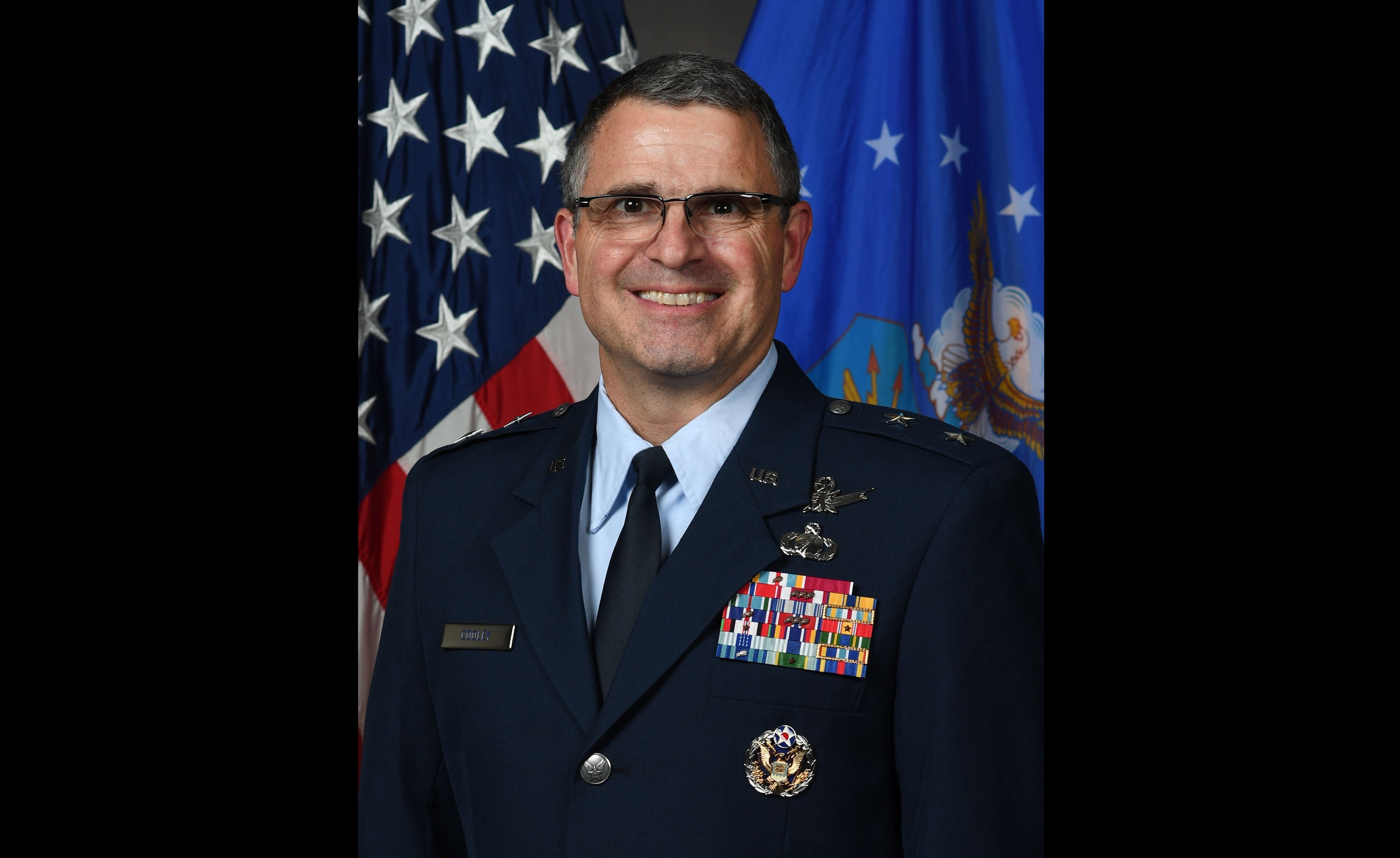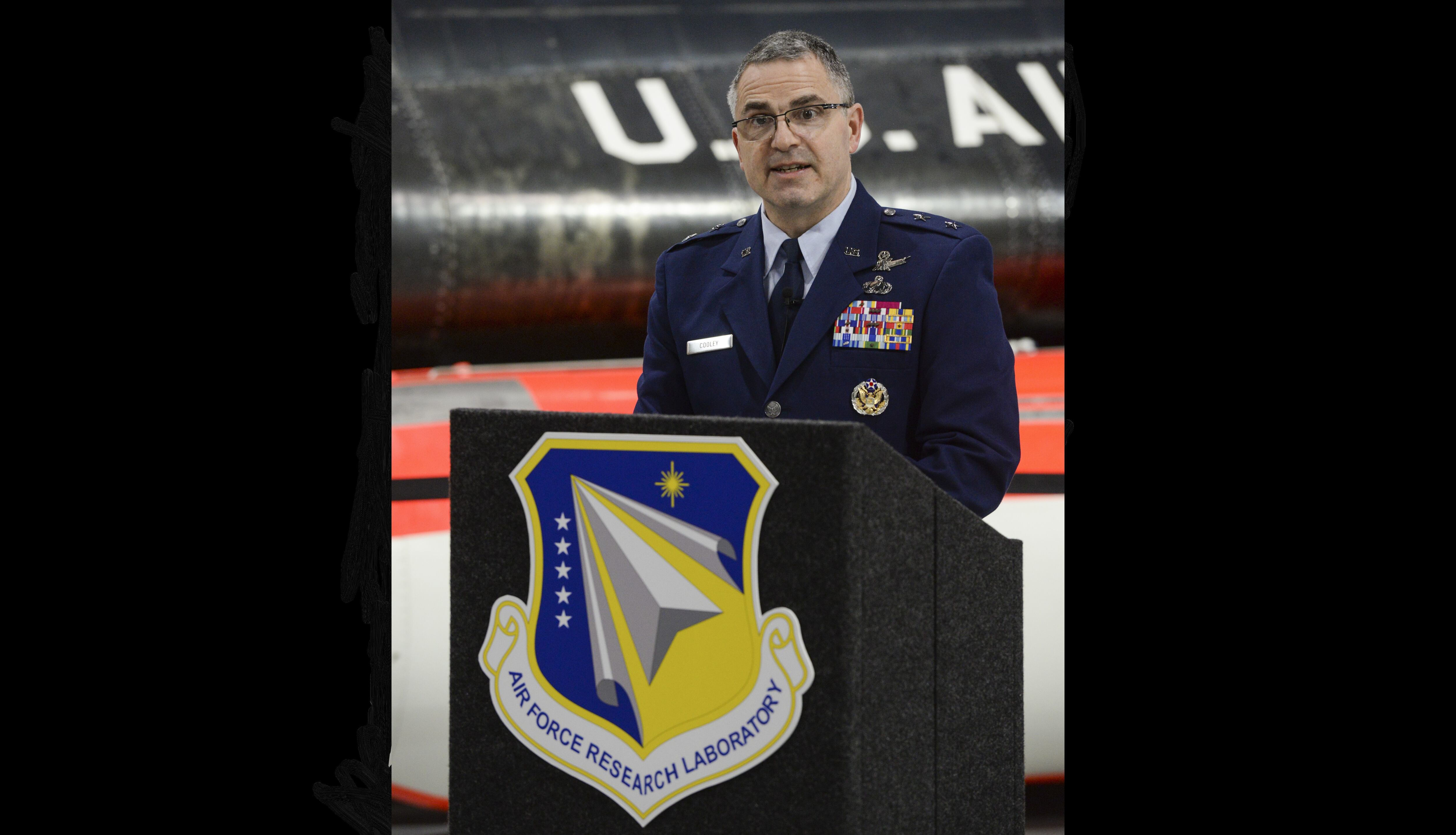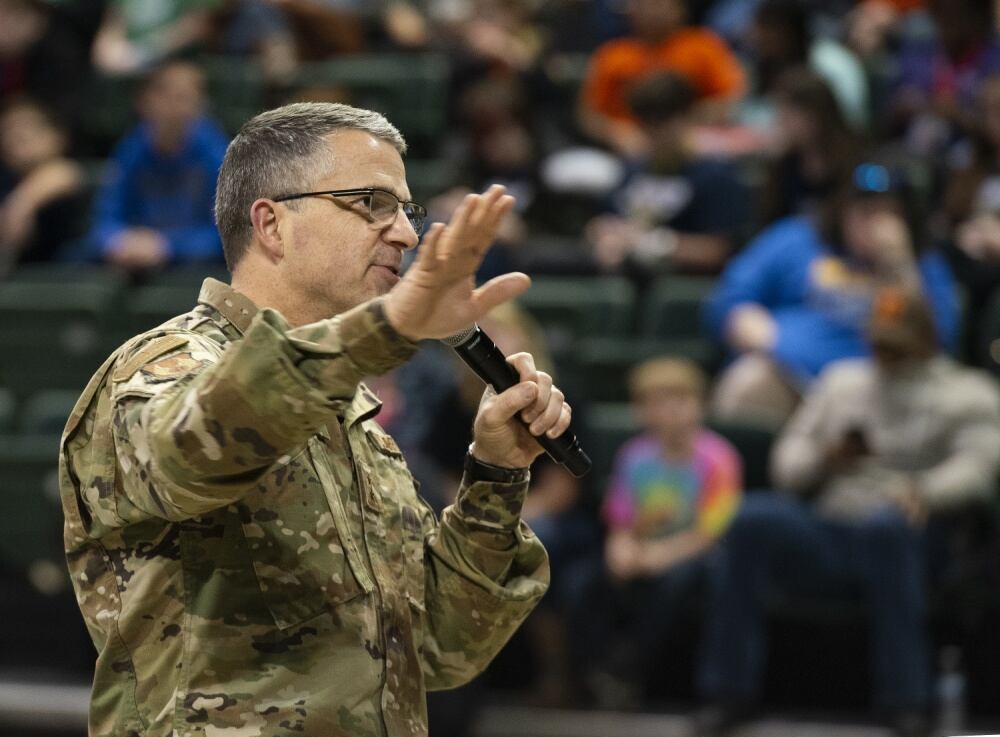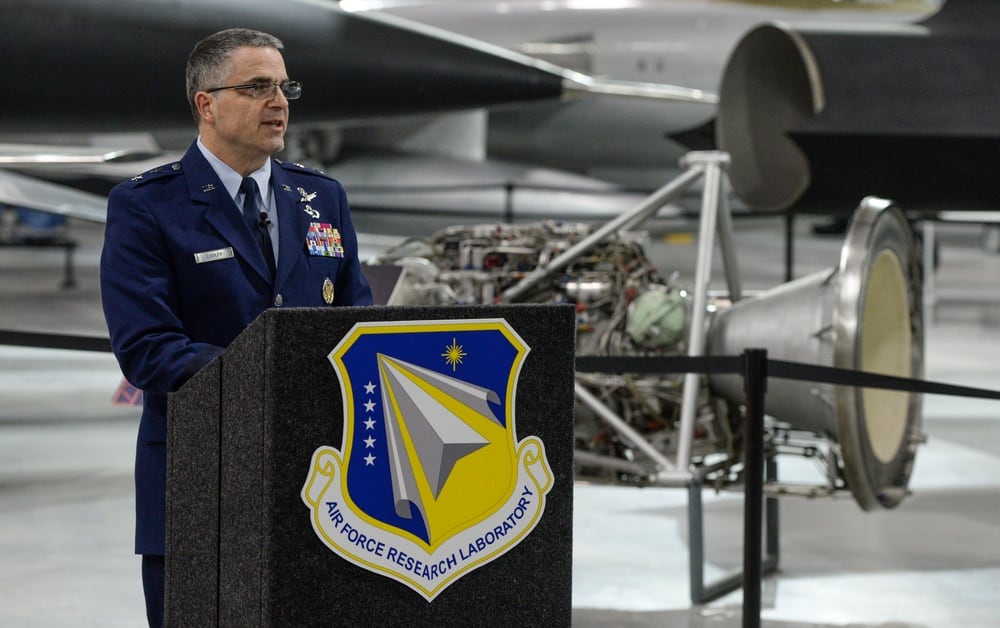WRIGHT-PATTERSON AIR FORCE BASE, Ohio — A military judge closed out trial proceedings Friday evening without issuing a verdict in the court-martial of Maj. Gen. Bill Cooley, pushing her decision until Saturday morning at the earliest.
Cooley, the former commander of the Air Force Research Laboratory, is accused of sexually assaulting his sister-in-law in 2018. He pleaded not guilty on Monday and argued the incident was consensual.
The two-star general is charged with one count of abusive sexual contact, with three specifications, for allegedly kissing the woman and touching her breast and genitals while alone in her car in Albuquerque, New Mexico.
RELATED

The woman also claims he moved her hand to touch his groin through his pants, which Cooley denies.
The defense acknowledges a kiss happened, but has characterized the lawsuit as a setup by the plaintiff to get revenge for a brief, consensual tryst.
Cooley’s sister-in-law agreed to be publicly identified by her relationship to the defendant, but not by name. Air Force Times does not publish the names of alleged sexual assault victims without their permission to protect their privacy.
RELATED

This is the first time a military court will issue a verdict in a case involving an Air Force general. It’s also the first time sexual assault charges have led to criminal prosecution for someone so high up in the chain of command.
Cases involving military personnel can be tried in either military or civilian court, or in both state and military court.
If Col. Christina Jimenez, who is presiding over the bench trial, finds Cooley guilty, she is expected to sentence him shortly afterward. He faces up to 21 years in jail, dismissal from the Air Force and withholding of pay, and a possible spot in the national sex offender database.
RELATED

The prosecution in closing arguments Friday argued the defense is taking evidence out of context and twisting the alleged victim’s words so the two-star general can avoid responsibility.
“[I] kissed you in an uninvited way … for my own selfish ego,” Cooley said in a written apology from 2018 that the prosecution cited in court. “I’m stunned at my deplorable actions.”
While the defendant told others he had made a pass at his sister-in-law that she invited, his privately drafted apologies expressed regret for objectifying the woman and that he sought help.
RELATED

Defense lawyer Maj. Shea Hoxie argued the woman refuted her own claims as laid out in Cooley’s apology, which his accusers forced him to say under threat of reporting the incident.
“They kissed, he fantasized about a relationship, and then they spent 16 months talking past each other,” Hoxie said in closing arguments Friday.
The prosecution said the woman felt Cooley’s attempts at apology for the incident were disingenuous.
Cooley’s sister-in-law called the contents of a written apology from the general “lie-filled, shameful … garbage” in a September 2018 email.
Lt. Col. Matthew Neil, a lawyer for the sister-in-law, countered that while the general would have been worried about charges, that doesn’t make the apology a false confession. He also pushed back on suggestions that the woman’s struggle to remember certain details, or her delay in telling her husband, means she’s lying.
“Why didn’t she yell for help? Hindsight is 20/20,” Neil said in closing arguments. “It’s easy to judge her for that, but nobody knows how they are going to react.”
RELATED

A voicemail the woman left for Cooley, telling him that his brother knows “we kissed,” conveys nothing about consent, Neil said. The defense portrayed the voicemail as proof that the general hadn’t forced himself on her and that she wanted the kiss.
Cooley was removed from command in January 2020 amid an Air Force-led investigation and charged with violating Article 120 of the Uniformed Code of Military Justice, which forbids sexual assault.
He now serves as an assistant to Air Force Materiel Command boss Gen. Arnold Bunch, advocating for the service’s science and technology plans.
Defense lawyer Dan Conway said Thursday Cooley’s team would appeal to Bunch, who can decide on clemency matters, to lighten the two-star’s sentence if he is convicted.
Rachel Cohen is the editor of Air Force Times. She joined the publication as its senior reporter in March 2021. Her work has appeared in the Washington Post, the Frederick News-Post (Md.), Air and Space Forces Magazine, Inside Defense, Inside Health Policy and elsewhere.





